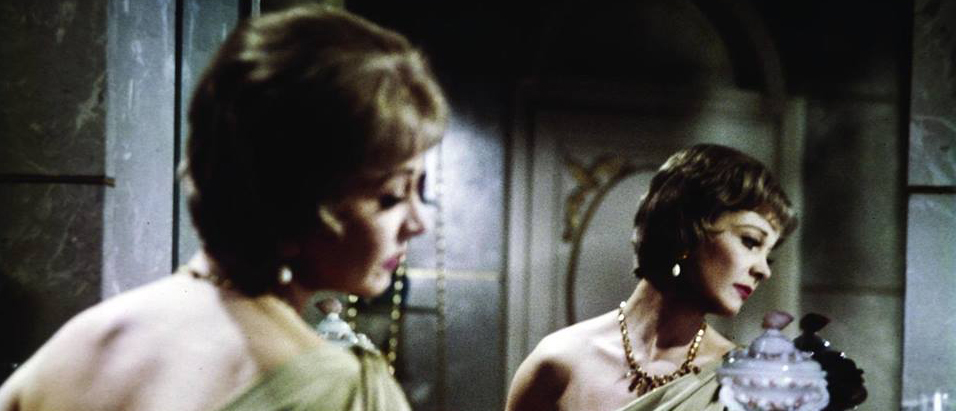Chloe Murphy writes about what Living British Cinema means to her.
British Cinema is a curious thing to define. The very nature of Hollywood immediately invokes something far more concrete and direct: sparks of glitz and glamour, beautiful people and salacious scandals, more wealth evident in a single frame than Fitzgerald could ever invoke in the pages of his Great Gatsby. While British Cinema inevitably shares a host of similarities with its sun-drenched cousin through casting triumphs, narrative development, and technological expertise, there’s altogether something less homogenous about it. There’s something more understated; something more about the beauties and tragedies of life’s mundanity than spontaneous anomalies illustrated through CGI. Richard Dyer may have said that stardom is the construction of paradoxes, but there’s something equally paradoxical when it comes to British film: built on the bedrock of a theatrical tradition that continues to this day, it’s largely unafraid to explore evolving social contexts and the chasms within them, whether through the likes of Saturday Night and Sunday Morning (Karel Reisz, 1960), Atonement (Joe Wright, 2007) or Fish Tank (Andrea Arnold, 2009).
In many ways, I think that some of the greatest qualities of British film can be found within Edgar Wright’s Three Cornettos Trilogy, the last of which – The World’s End – was released in 2013. Through the medium of Zom-Rom-Com, Crime-Action-Mystery, and Apocalyptic Sci-Fi, Wright explores the themes of survival, identity and – in the least sentimental way possible – the resilience of friendship.
Immediately, we find in Wright’s work the sense of intertextuality common to British Cinema, whether in regard to music or movies or the Great Literary Canon; Kieślowski’s Three Colors Trilogy may be more emotionally intense and darker in tone than Wright’s comedies, but there’s a wonderful sense of cinematic homage in its parallel. British Cinema is essentially an evolution of a myriad of genres and mediums from a range of national identities: not only through the distinct nationalities tied under the banner of ‘Britishness’, but of Europeans, of Post-Colonial influences, and indeed, of the United States. By demonstrating a respect for its origins and its predecessors, there lies a real sense of respectful admiration in Wright’s Trilogy which provides a very dry, grounded feel. This intertextual openness simply makes watching the films so much more entertaining for lovers of cinema because the visual and narrative references, however slight or obvious, bring a glorious sense of (slightly) smug achievement at their comprehension. On a less self-satisfied level, where would Shaun of the Dead (Wright, 2003) be without Romero’s Dawn of the Dead (1978), if not only in title and concept alone? Where would Hot Fuzz (Wright, 2007) be without Point Break (Bigelow, 1991) and its ‘firing a gun up in the air and going AAARGH’? Where would The World’s End be without the likes of 1950s Alien B-Movies such as The Thing From Another World (Hawks, 1951)? The Cornetto Trilogyinvokes a sense of displaced montage that only increases its humour and, ironically enough, its complete originality.
British films have often staked their individuality through their genre (Kitchen-Sink Drama), cultural status (1960s ‘Swinging London’ movement), and defiance against established norms (Julie Christie’s unique image of independent femininity). In Wright’s Cornetto Trilogy, we see evidence of all three of these processes. Genres are tempered and fractured into meshes of core themes and character archetypes, defying assumptions while providing satisfying conclusions – The World’s End, for example, is less about humanity’s triumph over supernatural alien forces than it is a nostalgia piece about the terrifying transition to adult independence. Despite their broad categorisation as comedies, largely down to the wonderful chemistry between Simon Frost and Nick Pegg – with their consistent portrayal of two men destined for friendship on all manner of plains of being – there is always pathos invoked to present the perfect pessimistic foil to comedic optimism. In a nation where tutting, eye-rolls and complaints about the weather are intrinsic to everyday life, this amalgamation of emotion sets a resolutely British restraint without ever falling into the pitfalls of gross-out comedy or spine-chilling melodrama.
The main significance, perhaps, of the resolutely British cinematic qualities of Wright’s work is his exploration of British Identity. In a globalised world where pop-culture both illuminates our lives and crushes quirkier traditions, The Cornetto Trilogy embraces ‘Britishness’ through its references to nostalgic confectionary, now-defunct provincial supermarkets, the status of provincial pubs as sanctuaries, and the ‘Keep Calm & Carry On’ resilience expressed through such plans as surviving a Zombie Apocalypse by simply sitting it out in the local, ‘waiting for it all to blow over’. Wright considers the ethical implications of digital communication and mass-media, while also drawing much of his humour from outlining the gap between British and Hollywood cinematic sensibilities: it is, of course, far funnier to consider trivial provincial jealousy from Neighbourhood Watch teams as the motive for criminality rather than clichéd sensationalism. Additionally, the casting of all three films offers a mix of stars of British stage and screen: televisual actors such as Lucy Davis (The Office), Jessica Stevenson (Spaced) and Dylan Moran (Black Books) perform alongside the likes of Bill Nighy, Jim Broadbent, and Pierce Brosnan, creating a cohesive mix of multiplicity of audience, acting styles and talent.
Essentially, then, British Cinema is a multitude of themes, archetypes and observations that are difficult to pin down into a definitive classification. And yet we can see flickers of a resolutely ‘British’ sensibility in the work of British directors such as Edgar Wright, of quirks and witty restraint invoking something very specific about the British consciousness. In the modern sense of British Cinema, there seems to be a move towards the modern, digital age by preserving, or celebrating traditional customs and established British stars while revolutionising scripts, shots and narratives through the use of global influences and technological developments. And it this amalgamation of the old and the new, the history and the future, that truly sets British Cinema apart.
Chloe Murphy, 2014
